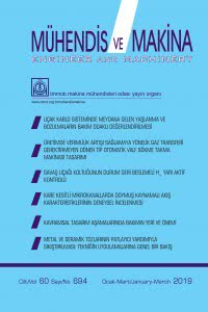Azgelişmişliğin kıskacındaki Türkiye ve mühendislik enformasyon-formasyon-deformasyon
21'nci yüzyılda yaşanacak teknolojik gelişme hızı, gelişmekte olan ülkelerin bu alanda politikalar üretemedikleri sürece çok hızlı bir şekilde geride kalacaklarını ortaya koymaktadır. Bütün bu koşullar, Türkiye'nin çağdaş mühendislik eğitimini yaygınlaştırmasının yanı sıra sanayileşmeden, teknolojik öngörü'den teknoloji üretiminden, araştırma ve geliştirmeden,üniversite-sanayi işbirliğinden yana politikalara duyduğu gereksinimi çok açık bir şekilde göstermektedir. Bu nedenle ülkemizdeki mühendis ve mimarların daha donanımlı birikimli ve bilinçli olarak yetiştirilmesinin yanı sıra toplumsal ve teknik işbölümü içerisinde mesleki eğitimleri ile uyumlu üretken bir konuma sahip olmaları için gerekli politikaların uygulanması, da çok büyük bir önem ve öncelik taşımaktadır. Bu nedenle çağdaş bir mühendislik eğitimi formasyonunun deformasyona uğramadan ülkenin kalkınmasına yöneltilebilmesinin, üretim ekonomisi, üniversite sanayi işbirliği ve bilim ve teknoloji politikaları ve insan kaynakları planlaması temelinde uygulanan kalkınma stratejileri ile ilişkisi analiz edilmelidir.
The rapid technological development of our age is altering the profile of engineering in the 21st century. Engineers' education, their professional and social responsibilities and their indispensible position in production have been affected at the same rate by this change and will: continue being affected in the future. Therefore, evaluations related with the changing profile, of engineers should include education, as well. However, the basic function expected from engineers in countries caught in the dilemma of underdevelopment and instability must be analysed and evaluated in terms of the extent of it, coinciding with the change in the profile and function of engineering in the evolution towards information society. This process should include the analysis of not only the quality of engineering education and engineering services, but also the level of use of engineering functions and expectations from engineers. Even if we assume that engineers are trained to generate technology, observe technological and scientific developments, their working conditions in the production process and the expectations from them should be the topic of this analysis too. Raising the quality of engineering education should be studied within the framework of planning and technological foresight approaches directed at national development strategies of countries, by adopting a unitarian approach. If an engineer, who is capable of processing the rapidly increasing unprocessed information, is cut off from production and falls behind the rate of change of information, then deformation will increase and it will not be possible for him/her to catch up after a certain period of time.
___
- ISSN: 1300-3402
- Yayın Aralığı: Yılda 4 Sayı
- Başlangıç: 1957
- Yayıncı: TMMOB MAKİNA MÜHENDİSLERİ ODASI
Sayıdaki Diğer Makaleler
Enerji korunumunda düşük enerjili bina tasarımları
Enerji tasarrufu yönünden standartların yetersizliği
Alpin Kemal DAĞSÖZ, Kemal BAYRAKTAR, Hüseyin ÜNVEREN
Kojenerasyon sistemlerinin teknik ve ekonomik uygulanabilirliği
Mustafa İNALLI, Halit L. YÜCEL, ERDEM IŞIK
Azgelişmişliğin kıskacındaki Türkiye ve mühendislik enformasyon-formasyon-deformasyon
